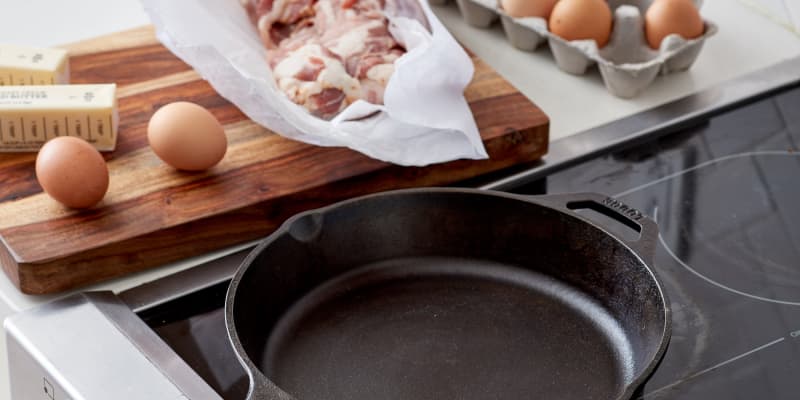Cast iron cookware is a staple in many kitchens, loved for its durability and heat retention. However, safely handling cast iron, particularly when using an induction cooktop, requires attention and care to avoid damage or injury. In this article, we will explore the best practices for lifting and handling cast iron cookware on induction cooktops.

Understanding Cast Iron and Induction Cooking
Before diving into the specifics of lifting, it’s important to understand how cast iron and induction cooktops work together. Unlike traditional stoves, induction cooktops use electromagnetic fields to heat pots and pans directly. This means the cookware itself becomes the heat source.
Why Choose Cast Iron for Induction Cooking?
Cast iron is highly compatible with induction cooktops because of its magnetic properties. Its ability to retain heat makes it ideal for tasks like searing meat and slow cooking. However, its weight and the potential for scratching the cooktop necessitate careful handling.
Preparing to Lift Cast Iron
Preparation is key to safely lifting cast iron off an induction cooktop. Heres how you can ensure a safe lift every time.
Wear Protective Gear
Always wear heat-resistant gloves or mitts to protect your hands from burns. Cast iron retains heat for a long time, even after the heat source is turned off.
Check Stability
Ensure that the cookware is stable and not sticking to the cooktop. Sometimes, residues can cause the pan to stick slightly. Gently move the pan to check if its free.
Steps to Lift Cast Iron Safely
Now that you are prepared, follow these steps to safely lift cast iron from an induction cooktop.
Step 1: Secure Your Grip
Use both hands to grip the handles firmly. If your cast iron has a helper handle, use it to balance the weight evenly.
Step 2: Lift with Care
Lift straight up to prevent dragging, which could scratch the cooktop surface. Keep your back straight and use your legs to lift if the pan is particularly heavy.
Step 3: Place on a Safe Surface
Have a heat-resistant mat or trivet ready to place the hot cast iron on. This will protect your countertops and other surfaces from heat damage.
Maintaining Your Induction Cooktop
Proper maintenance of your induction cooktop will prolong its life and ensure efficient cooking.
Clean Regularly
Wipe the cooktop with a soft, damp cloth after each use to remove any food particles or spills.
Use a Protective Mat
Consider using a silicone mat designed for induction cooking to prevent scratches when moving cookware.
For more tips on using cast iron with induction cooktops, check out this guide on cast iron and induction.
Common Mistakes to Avoid
Avoid these mistakes to ensure safety and longevity of both your cast iron and induction cooktop.
Dragging the Pan
One of the most common mistakes is dragging the pan across the cooktop, which can cause unsightly scratches.
Ignoring Weight Limits
Ensure your cooktop can support the weight of your cookware. Overloading it can lead to damage.
Additional Tips for Safe Handling
Here are a few more pointers to keep in mind for safe handling of cast iron on induction cooktops.
Use a Splatter Screen
When cooking with oils, a splatter screen can prevent burns from hot oil.
Allow to Cool
Before attempting to clean or move the cast iron extensively, let it cool slightly to avoid burns.

FAQ
Can cast iron damage induction cooktops?
Yes, if dragged across the surface or if its too heavy for the cooktop, cast iron can cause scratches or damage.
Is it safe to use cast iron on induction cooktops?
Yes, cast iron is safe and works well with induction cooktops, but it must be handled with care to avoid damage.
What should I do if my cast iron sticks to the induction cooktop?
Gently wiggle the pan to free it. Avoid using sharp objects to pry it off.
For more information on the compatibility of cast iron with induction cooktops, visit Lodge Cast Iron’s guide.
This article contains affiliate links. We may earn a commission at no extra cost to you.

